by CHRISTINE JANINE T. CORTEZ
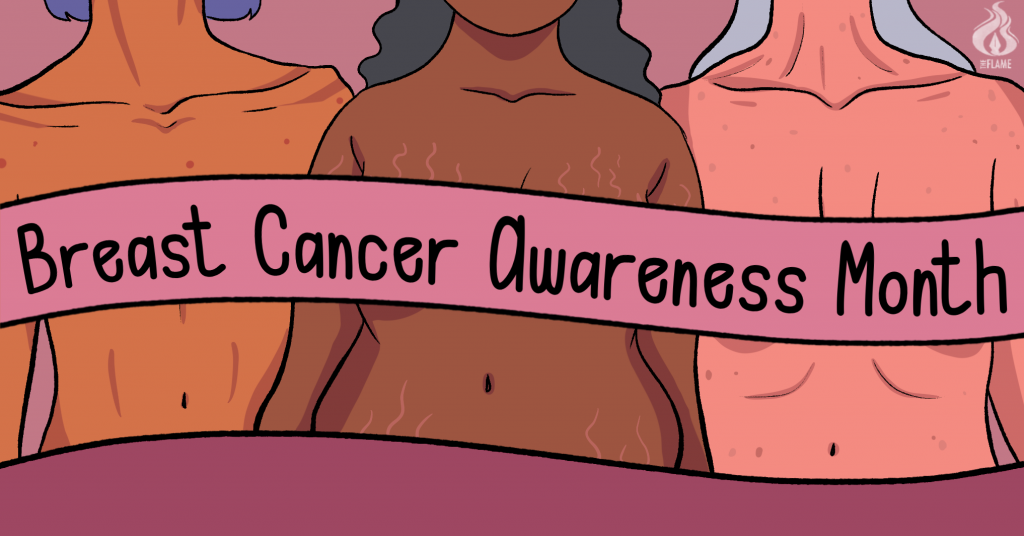
INSUFFICIENT breast health education may feel frightening for women who live in a critical society that may have far-fetched body standards and expectations.
At present, a social media disease known as “boob shaming” is becoming a trending stigma and a poor habit that cultivates within the harmful side of society and the internet. This form of social discrimination and unsolicited attack is manifested when the public criticizes how women’s breasts look.
The issue is often hardly discussed or brought to people’s attention because a majority may think that breast talk is merely a joke that is either too personal or too sexual.
Why breast awareness is vital to women
Breast Cancer Awareness Month every October is a campaign inspired by a global effort to spread awareness for breast cancer patients, survivors, and women in general. Otherwise known as the ‘Pink campaign’, October is a reminder for women of all ages to have their breasts screened to detect early signs and symptoms of the disease.
Unknown to many, breast cancer emerges as the most common type of cancer affecting women across the globe.
The Philippines reported having the highest incidence with an increasing mortality rate of breast cancer in recent years.
Other studies also state that Filipino women face a greater risk of developing breast cancer. According to the International Agency for Research on Cancer (IARC), one out of 13 Filipino women is likely to suffer the disease in their lifetime.
With the theme “United we fight,” the Department of Health (DOH) advocates the importance of regular self-breast assessment and the critical role of screening for early detection and treatment.
No comment is never ‘not offensive’
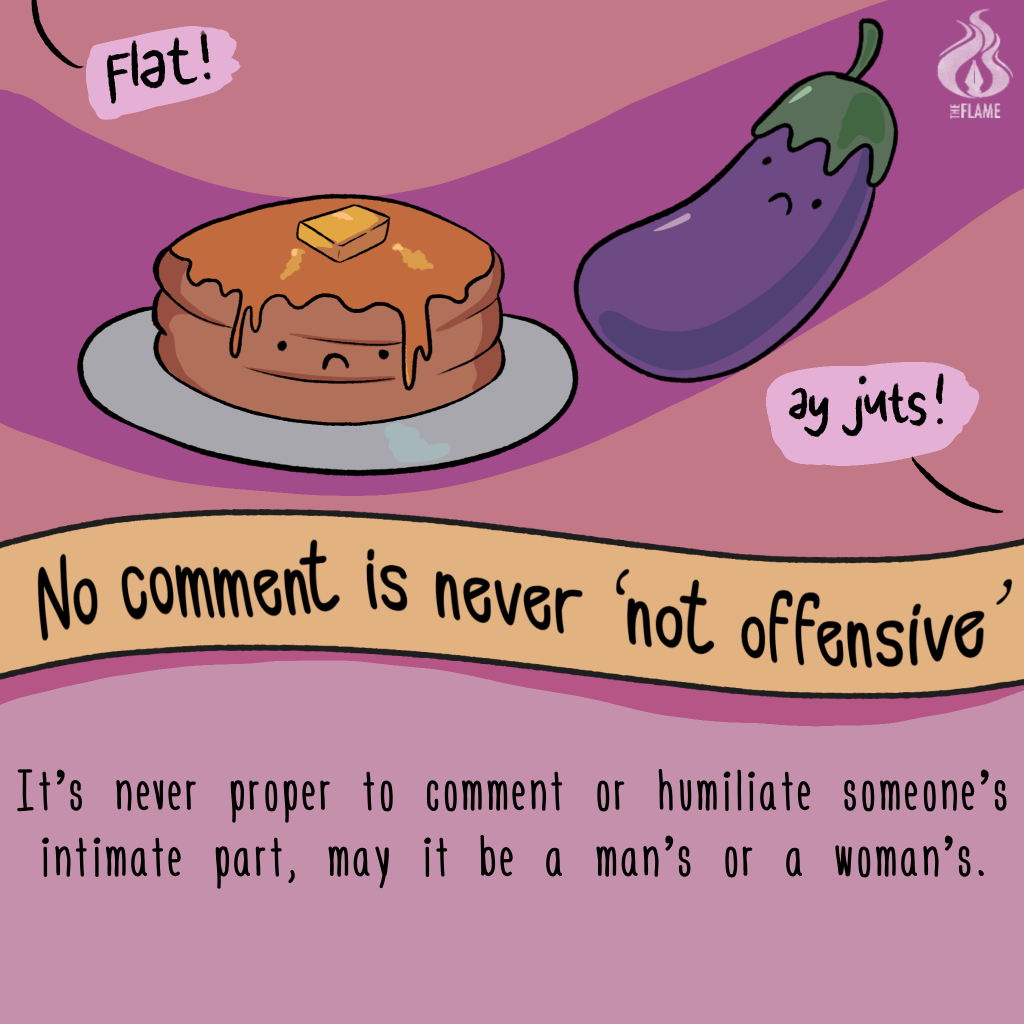
It’s never proper to comment or humiliate someones’ intimate part of the body, may it be a man’s or a woman’s.
Many people don’t understand that giving someone the liberty to comment on women’s breasts, for being less appealing or acceptable to their eyes, is absolutely derogatory. Moreover, this form of verbal abuse has a bigger tendency to cause more damage to women’s mental and physical health.
Perhaps saying it makes people aware of how their breasts look, but that doesn’t mean it’s necessary. As a woman, the least that we could do for ourselves is to demand respect.
Not wearing a bra shouldn’t feel illegal
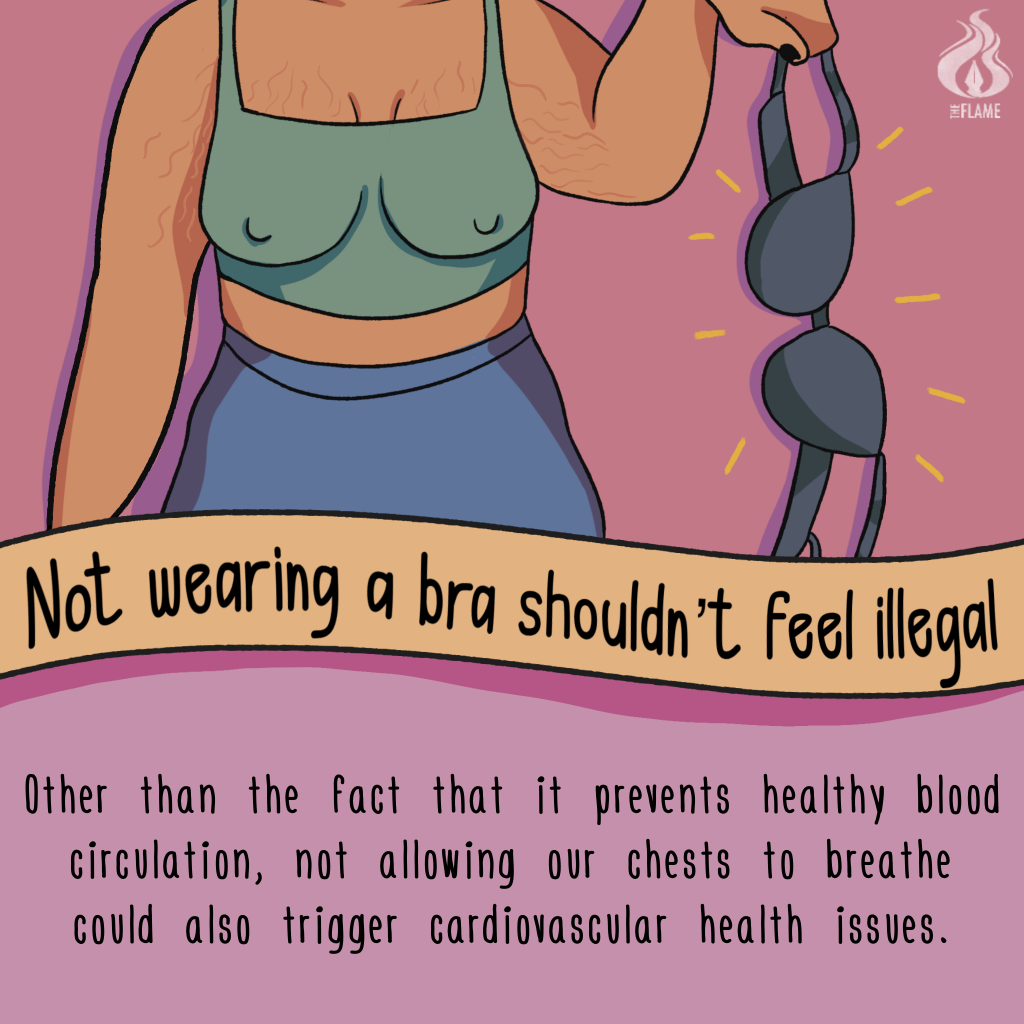
At a young age, girls were taught that wearing a bra is a necessary part of womanhood, and that it will prevent breasts from sagging.
Contrary to this popular belief, a long-running French study has proven that the constant wearing of bras makes the breasts lose their natural shape over time. This is not to say that it’s wrong to wear a bra, but truth be told, the perpetual routine of wearing a bra is not always comfortable.
Other than the fact that it prevents healthy blood circulation, not allowing our chests to breathe could also trigger cardiovascular health issues.
Not all breasts are the same, period.
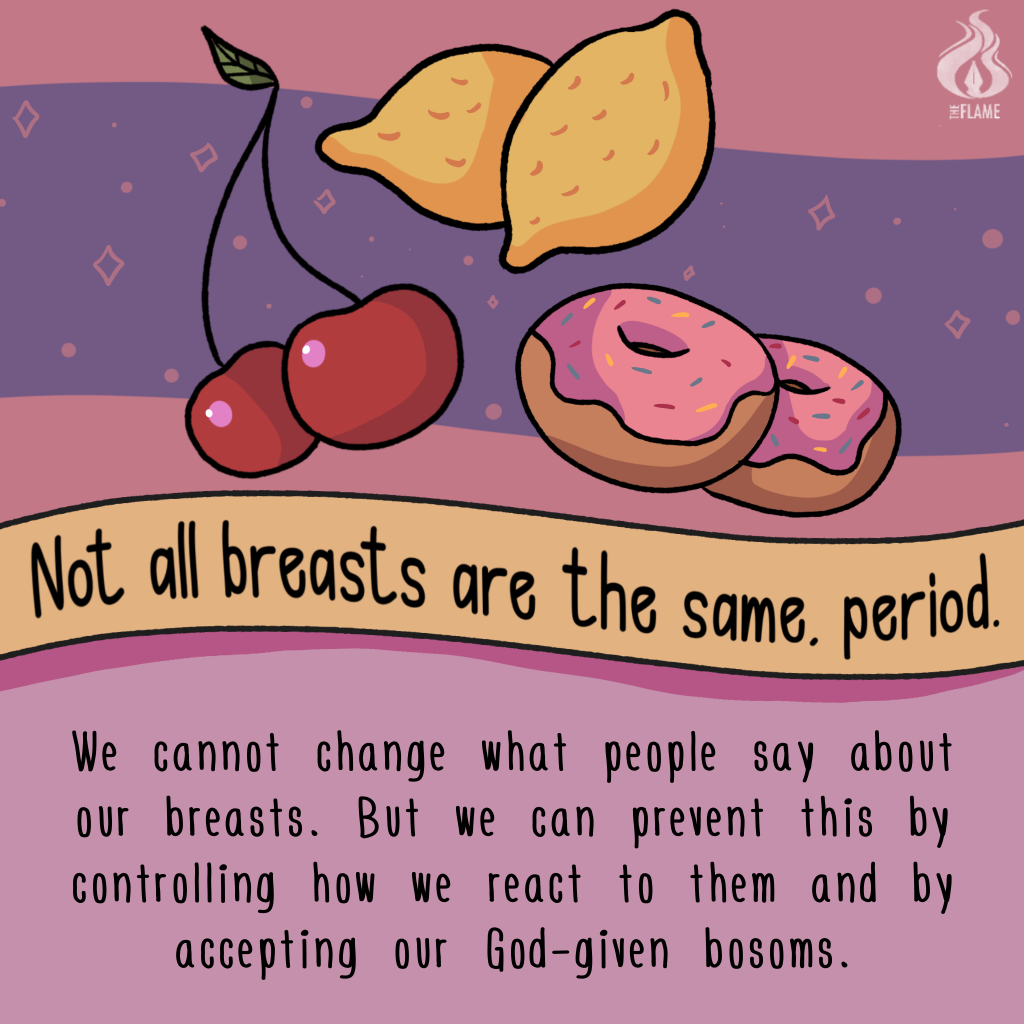
The typical ladies’ cup size is usually determined by letters A, B, and C. But to make it less complicated, some would refer to them as flat, average, or busty. Although they may sound harmless at first, using these descriptions is, by all means, insulting to women.
We cannot change what people will say about our breasts. But we can prevent this by controlling how we react to them and by accepting our God-given bosoms.
They may be rounder, perkier, busty, flat, soggy, asymmetrical, and whatnot. Either way, not having the ‘ideal’ breast appearance doesn’t equate to one being less or more perfect than the other.
No breast is meant to fit the standard of society
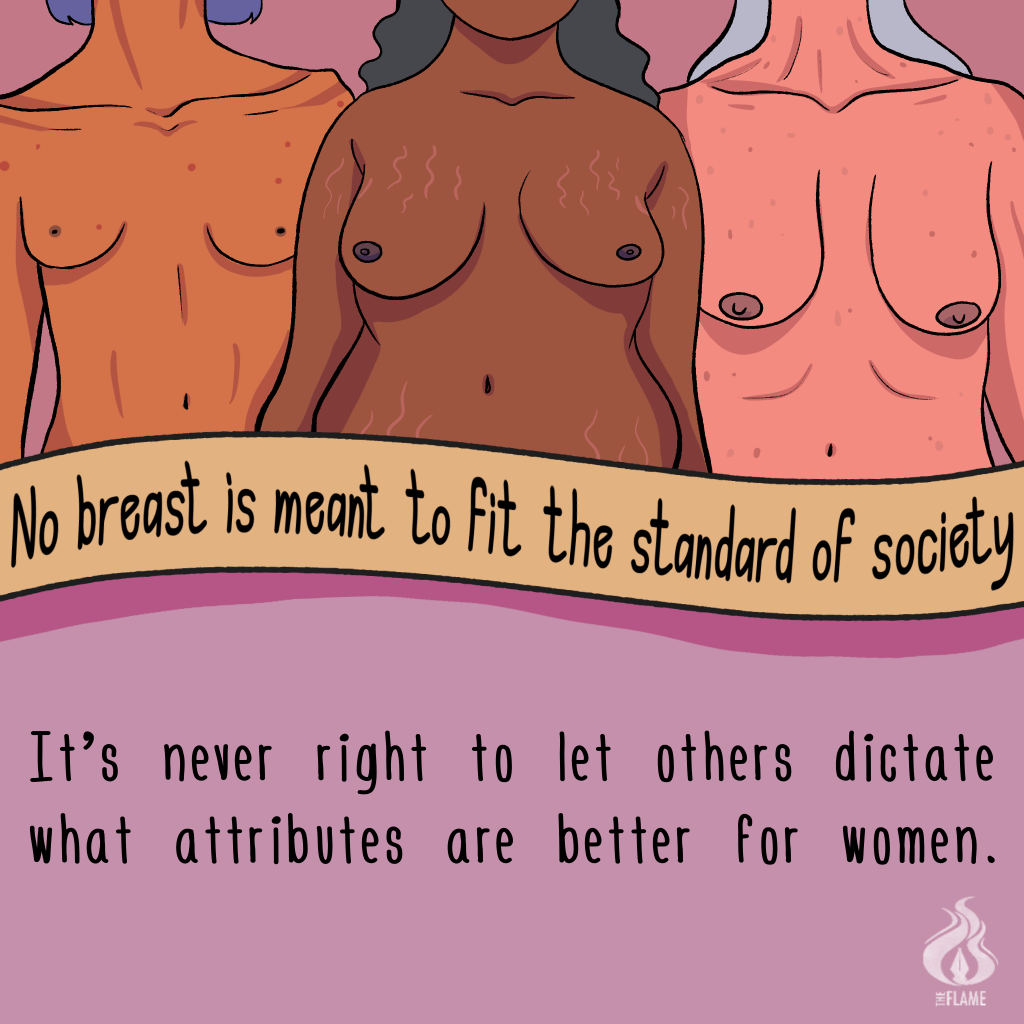
It’s sad knowing that there are women who engage in downplaying their fellow women’s bodies. Above all, these socially constructed standards fabricate a far-from-reality representation of what women ought to be. As a consequence, women may tend to feel sorry about their breasts.
To avoid these untoward hate comments, some girls are pressured to undergo breast surgery, breast implants, breast augmentation, or even breast reduction. Based on the 2020 Plastic Surgery Report, breast augmentation among American women ranks 5th in the top five cosmetic surgical procedures.
It’s never right to let others dictate what attributes are better for women. With all things considered, it’s crucial to remember that the human breast is more than just an organ composed of fatty tissues.
The younger generation of women should not grow up looking forward to having a ‘perfect’ breast. At the end of the day, even if one’s breasts have hairs and are not as pink, it’s okay. Let’s make it a point to encourage young women to love their bodies. F



